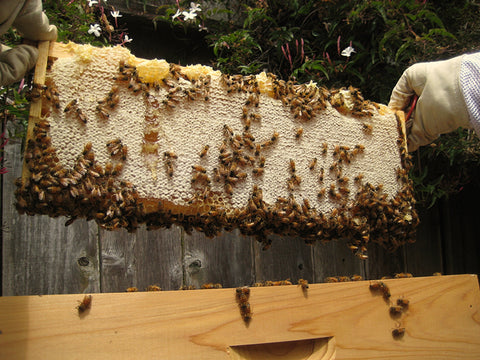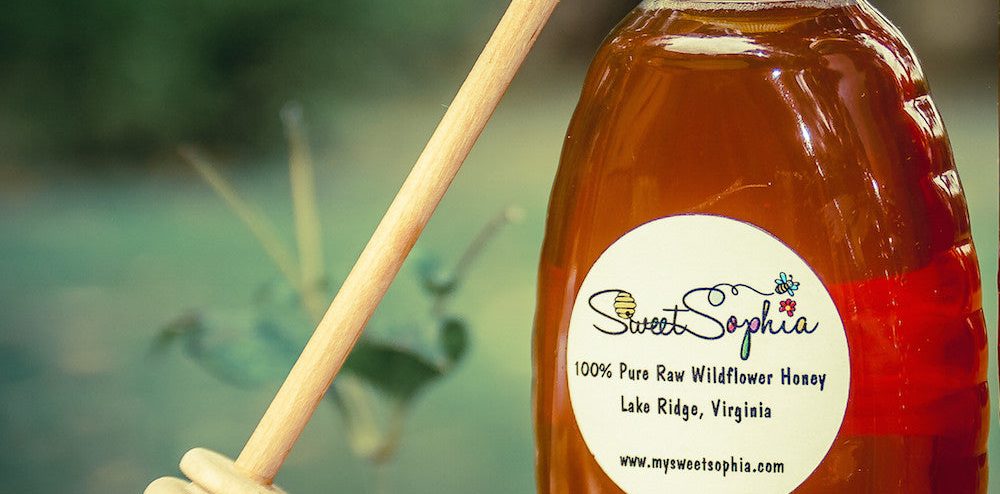“Why should you pay extra for local honey when the stuff on the shelf tastes just fine?”
That is a fair question, and one that I would’ve asked before becoming a beekeeper. I had no idea about how commercial off-the-shelf honey was processed, nor did I care. But with most things, when I get into something, I try to learn as much as I can about it. It didn’t take long for me to realize that my entire outlook on honey was skewed! So, here is the scoop.

1) Commercial honey comes from a variety of places. When honey is processed, it is heated (or pasteurized) to kill the little yeast cells that could cause the honey to ferment. Unfortunately, pasteurizing the honey kills the awesome enzymes and nutrients that make it so healthy. Commercial honey is also “super filtered” to make it crystal clear and pleasing to the eye. Super filtering removes the pollen that makes honey, well…honey. So what you get off the shelf for $2.99 is not really honey anymore. It still tastes the same, but it’s technically just sugar syrup.
2) “Organic” honey is a farce. Bees travel in a roughly 3 mile radius from their hive to collect pollen and nectar and can extend that to a 6 mile radius if needed. That equates to anywhere from 28 to 113 square miles of forage area. The honey is a product of the plants the bees visit. Unless you know that your honey comes from bees inside a bio-dome, you have no idea if all the PLANTS grown are organic.
3) Honeybees literally work themselves to death to make that honey. From the time they are born to the time they die, they are tending to the colony. Honey bees from a typical hive visit approximately 225,000 flowers per day. Bees must visit approximately 2 million flowers and fly over 55,000 miles to make 1 pound of honey. That seems worth about $11 to me!
4) While I can’t speak for other beekeepers, I assure you that my bees are very protective of their precious honey (It’s their winter food source after all!), and they are more than willing to die protecting it. That means I get plenty of bee stings. The process of extracting the honey from the comb is insanely sticky and takes a lot of work. But it is nothing short of amazing to pull pure and delicious honey from the comb. Bees are really incredible creatures.
So, local honey will cost you a few bucks more, but it is worth it. You don’t really know your honey if you don’t know your beekeeper! Even if you don’t buy our honey, do us a favor and support your local beekeepers!
Save the Honey Bees!

